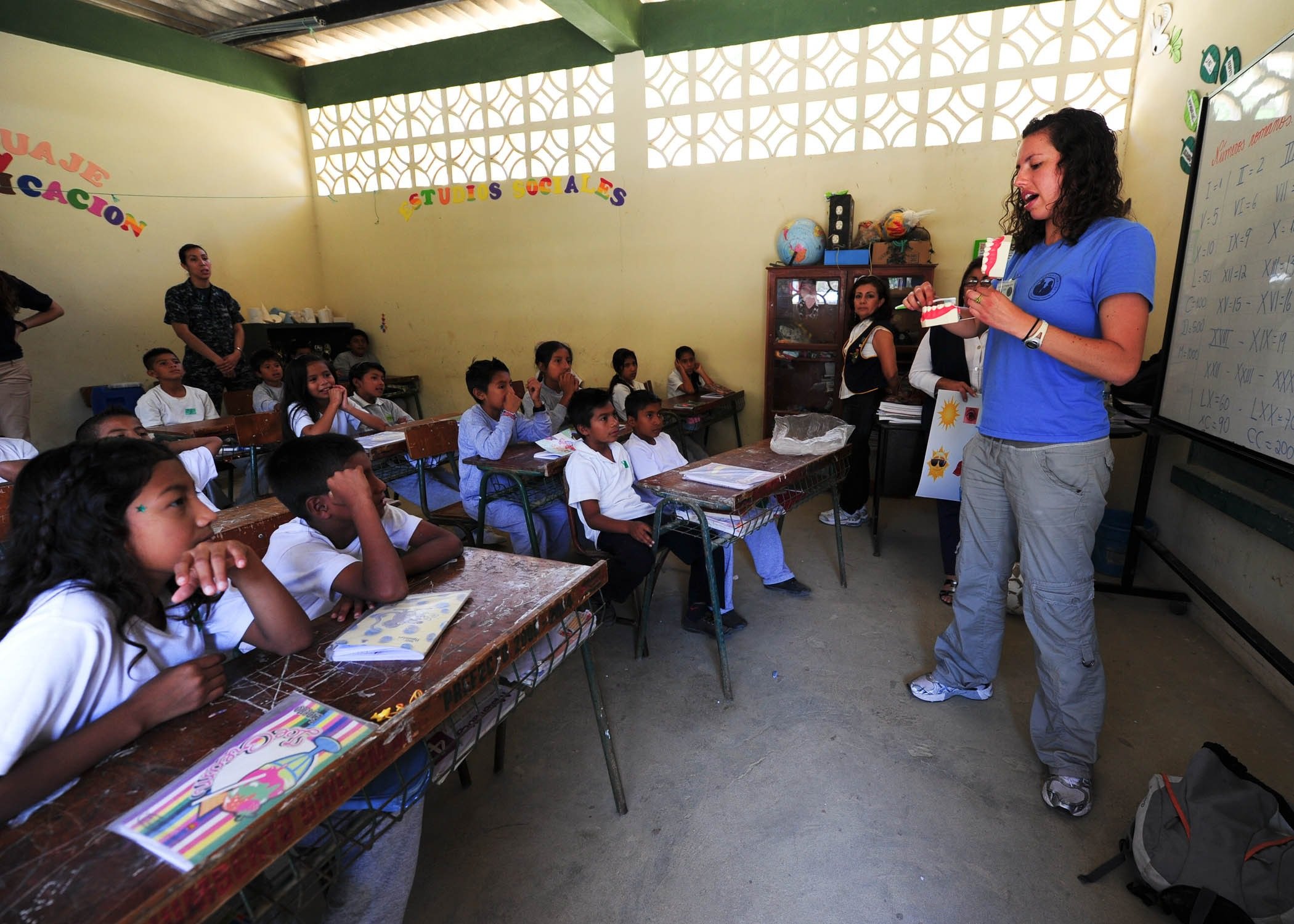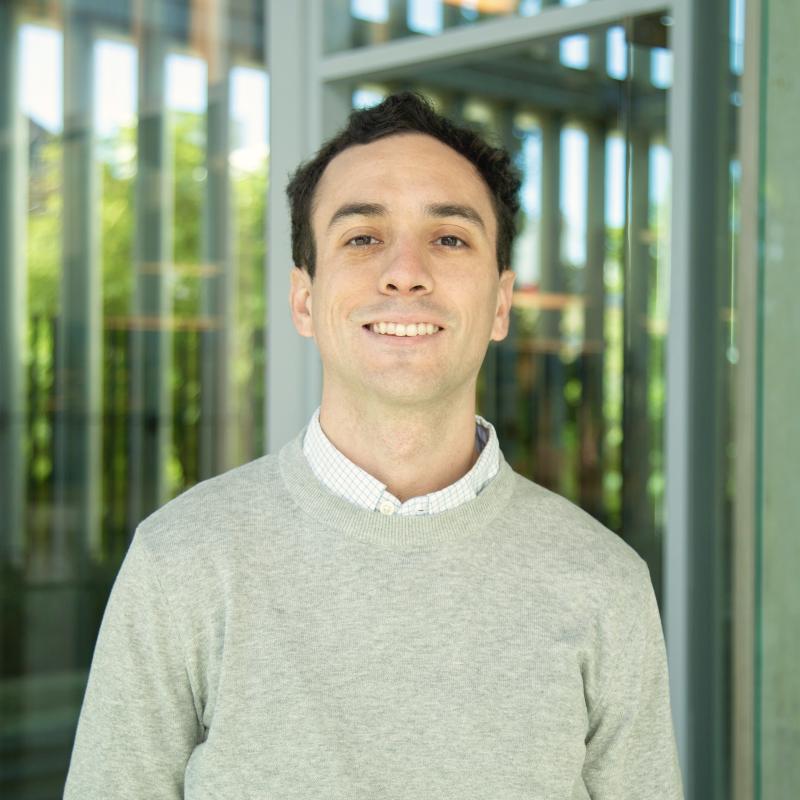Good news from Latin American education: civil society is pushing for prioritisation of learning (and governments seem to be listening)
Bautista Fazio, 2024 Master of Public Policy student, explores how civil society movements in Latin America are driving a long-awaited shift in education policy.

Education policy in Latin America may be at the beginning of a positive shift. After decades of ambitious reforms that expanded access but had limited impact on learning, governments across the region (particularly after the pandemic) are beginning to focus on learning outcomes. This change may reflect growing pressure from organised civil society demanding greater prioritisation and accountability.
It might be early to say, but the ingredients appear sound: civil society creating pressure, governments allocating political capital, and classrooms receiving clear direction. In times of declining international aid, Latin America may offer a crucial lesson: sustainable change comes not from external funding, but from domestic political pressure demanding that governments fulfil their core responsibilities.
The challenge of improving learning
Middle-income countries in Latin America have largely achieved universal access to education in the last few decades. Today, over 96% of children are enrolled in primary school across the region, and secondary enrolment has grown by more than 25 percentage points since 2000 – though completion continues to be a challenge.
Yet, as Lant Pritchett put it, “schooling ain’t learning”, and education systems persistently underperform. Learning outcomes remain well below international benchmarks: in PISA 2022, students in Latin America and the Caribbean scored an average of 373 points in mathematics, compared with 475 in OECD countries, a gap roughly equivalent to five years of schooling. This challenge is particularly acute in reading, where four in five sixth graders across the region are unable to understand a simple text.
Education leaders have often pursued too ambitious and comprehensive agendas, and in doing so, neglected whether students were actually learning. In recent years, however, and especially in the aftermath of COVID-19, stagnant results have led to growing frustrations about governments’ willingness and ability to improve learning.
Civil society is mobilising – and it seems to be working
Perhaps it was this frustration, together with clear evidence of poor learning outcomes after the pandemic, that led many civil society actors to reject the idea that the solution was simply more of the same. Added to this were growing calls from international organisations such as the World Bank to prioritise foundational learning. The combination of these forces may have triggered a new wave of civic mobilisation.
Political scientist Mancur Olson argued that when the benefits of a policy are spread thinly across a large group—what he called diffuse interests—it is difficult to mobilise people. But when the costs or benefits are concentrated in a few hands, action becomes easier. For decades, education in Latin America was the perfect example of this: everyone agreed education mattered, but few agreed on what “improvement” meant. That is starting to change. Across the region, groups are beginning to rally around a specific demand: that children learn.
In most cases, the big issue is literacy, as demonstrated by the cases of Argentina with its Campaña Nacional por la Alfabetización (National Literacy Campaign), Colombia with Colombia se Escribe Leyendo (Colombia is Written Reading), and Chile with Por un Chile que Lee (For A Chile That Reads).
The Argentine case is especially compelling. Using national assessment data showing that one in two students could not understand what they read, organisations and researchers launched a broad public campaign under a simple, unifying message: Que Entiendan lo que Lean (Let Them Understand What They Read).
Arguably, what made the difference was scale. The effort led by the education advocacy organisation Argentinos por la Educación, brought together more than 200 civil society groups, media outlets, academics, and social and business leaders spoke with one voice. That unity turned a diffuse concern into a clear demand. Ahead of the national elections, the campaign moved from awareness to proposals, calling on all political parties to sign a public commitment to prioritise reading comprehension – and every presidential candidate, from the far-right Milei to the left, signed it.
It is in this sense that these coalitions might represent a maturation of civil society advocacy in the region – with greater focus, unity and political mobilisation. It is as if they had learnt that technical expertise alone doesn’t drive reform, and that lasting change also requires collective purpose and public pressure.
Yet, there's a risk of overstating their novelty or effectiveness. Civil society can create political windows, but sustaining implementation requires bureaucratic capacity and resources that remain scarce. The challenge isn't just lighting the fire; it's keeping it burning through budget cycles, political transitions, and the inevitable implementation difficulties.
Governments are actually prioritising
But what makes this moment potentially significant is that governments are genuinely responding. Across the region, we are seeing education policies that break with the pattern of trying to do everything at once. These new initiatives are focused, resource-backed, and politically championed at the highest levels.
In Argentina, the government fulfilled its commitment and adopted the cause as a national priority, leading to a National Literacy Plan endorsed by all 24 provincial ministries of education – a rare consensus in one of Latin America’s most polarised countries. The plan established a national framework under which each province was required to design its own literacy strategy. To support this initiative, the national government created a Literacy Unit responsible for monitoring progress, supporting implementation and securing resources, and introduced a standardised literacy assessment.
This renewed sense of focus and urgency in classrooms made literacy a priority for schools and teachers. And one could say that if you sow focus, you reap credibility: international partners such as the World Bank and the Inter-American Development Bank saw in this plan a viable and serious effort to improve education, and pledged more than US$1 billion to support its implementation.
Chile has also advanced in this agenda, and its Plan Nacional de Reactivación Educativa (National Plan for Educational Recovery) is above all an exercise in national prioritisation: wellbeing, foundational learning, and attendance.
Rather than comprehensive reform packages that promise to transform everything, these plans identify specific, measurable learning goals and direct resources accordingly. This represents a departure from the “reform fatigue”, where ambitious restructuring efforts collapse under their own complexity before reaching classrooms.
Of course, announcements are not outcomes; the region has seen promising reforms before, and the real challenge comes with the transition lies in real implementation. Nonetheless, the merit should not be downgraded: the combination of civil society pressure and government commitment creates a more favourable trend than we've typically seen.
The ingredients for improvement are falling into place
It is perhaps too early to measure impact, however the model appears to be sound: create political urgency around learning, direct policy and resources towards that priority, and sustain the pressure.
The critical test will be maintaining this focus through the difficulties of delivery. The difference this time may be that civil society pressure creates ongoing political incentives for governments to solve implementation problems rather than simply moving on to the next initiative. It is also true that many of the education advocacy campaigns are already working to address this gap, developing roadmaps and mechanisms to support implementation, such as in Brazil or in Argentina.
There’s also the question of breadth versus depth. Focusing on literacy is strategic: it’s measurable, politically communicable, and genuinely foundational for all other learning. Yet governments must eventually address secondary education, equity gaps, teacher quality, and countless other challenges. The risk is either that focus dilutes over time, or that success in one area masks continued failure in others.
Still, if these focused efforts succeed even partially, they'll demonstrate something valuable: improvement, in education, is possible.
Lessons from Latin America
Latin America has rarely been a source of education (or any) policy lessons. The region has been more often characterised by persistent challenges than inspiring solutions. Yet the current moment offers something potentially valuable: a model of how civil society mobilisation can help reshape education priorities.
In a world where international aid has been sharply reduced, the Latin American experience points to a different path to improvement. It's early days, but the region is showing what organised civil society can achieve for education – and maybe the rest of the world should be paying attention.

